He’s one of those human supremacists who will sneer at the very possibility that the term even exists.
He’s not the only one by any means – nor, I suspect, is he the worst example. But unfortunately, he is in a position to promulgate his speciesist beliefs through Canberra’s only daily newspaper – and he does so often.
On several occasions over the last few years Jack has devoted his various opinion pieces to belittling vegetarians and animal liberationists. (Some of those opinion pieces are still available on the Canberra Times site and on his blog - www.canberratimes.com.au/blogs/jack-waterford). He also often acts as Letters Editor for the paper so is in a position to suppress or edit pro-animal views – though I must admit that my letters get a reasonable success rate, even when I am criticising his writings.
In Waterford’s case, his attitude of human supremacy seems to stem from his childhood on a rural property where nonhuman animals were either;
- ‘stock’ – cattle or sheep to be grown, used and killed as required,
- more-or-less domesticated dogs and moggies – useful around the farm but, kids, don’t get too attached to them,
- pests – any other nonhuman animals that such people believe interfere in their right to make a living off the land and their introduced ‘stock’, or
- others – I gather a very small group of native animals who were paid the respect of being ignored.
Waterford has a thing about vegetarians and regards us with mystified disdain if not real hatred. (“I learned early that vegetarianism is a fairly nutty, though harmless idea, perfectly tolerable so long as the proponent did not frighten the horses”).
Strangely, he believes that vegetarianism adopted as a ‘food fad’ can lead to veganism which can lead to support for animal rights. It is, of course, the opposite of what generally happens; learning of the cruelty inherent in producing unnecessary food and fibre from our fellow animals leads compassionate people to stop consuming meat and other animal products. It’s the concern for animals that leads to vegetarianism.
He is often very condescending toward us animal activists – apparently believing that we only ever campaign for animals that are “thought to be especially warm, cuddly or symbolic” – leaving cane toads and other less furry critters to fend for themselves. He also seems to believe that animal activists (including myself) are being ‘misinformed’ by ‘someone’. He apparently refuses to consider the possibility that we are able to seek out information and reach conclusions on our own.
His common themes also include the accusation that groups such as PETA (http://www.peta.org/) who argue for better treatment of animals are secretly aiming to make the whole world vegan. There is no secret, Jack. That’s exactly what we want (amongst other reforms). This is from PETA’s FAQ page;
“People who support animal rights believe that animals are not ours to use for food, clothing, entertainment, experimentation, or any other purpose and that animals deserve consideration of their best interests regardless of whether they are cute, useful to humans, or endangered and regardless of whether any human cares about them at all (just as a mentally challenged human has rights even if he or she is not cute or useful and even if everyone dislikes him or her)”.Jack’s most recent rant was on November 6 (I’m sure the Canberra Times will include it on his blog site when they get around to it. They seem to be a bit behind – at least on the Opinion pages – at the moment).
On that occasion he got a bit personal, describing me as “the hapless self-appointed publicist for a vegetarian movement which would, in the natural course of things, attract little publicity or support”. Before stepping down earlier this year, I was for a number of years the duly elected President of the ACT Vegetarian Society (http://www.vegetariansociety.org.au/). I often wrote on behalf of the Society but at other times, and since stepping down, write to express a personal opinion – backed by facts where applicable. By no means a "self-appointed publicist".
As for "hapless", it’s a bit tricky to jump up and down and yell “I am not hapless” without appearing - well, bloody hapless. So I’ll just have to let people decide on that point for themselves.
He also accused me of describing him, his history and ideas as "disgusting". I have never called him names as far as I can remember (at least until now) and it would be a foolish thing to do. Many of us, myself included, shared Jack’s prejudices until we began our journey of understanding and compassion toward nonhumans. I recall, many years prior to my own vegetarianism, meeting up with a cousin who I hadn’t seen since he was a small kid only to hear he was ‘a vegetarian’. I silently scoffed – thinking that the poor bloke must be a bit soft. Sadly, he was killed in a motor accident nearly 20 years ago and I regret not being able to chat to him now and compare notes.
Jack Waterford is not just wrong in his attitude to nonhumans and those who speak up for them but seems to delight in displaying that wrongness. He also comes across as a condescending bully – in one infamous article implying that he had the urge to smash us over the head with a 12” bolt.
It’s a shame he uses his position of influence to vilify animal libbers and vegetarians - particularly at a time when moving away from a diet based on animal products would benefit us, and nonhumans, in so many ways.
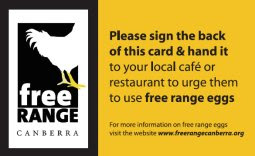
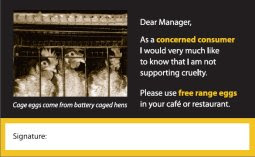
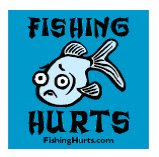

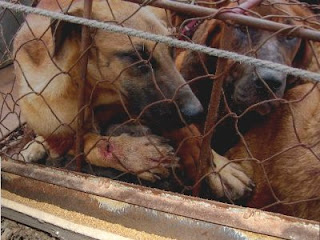
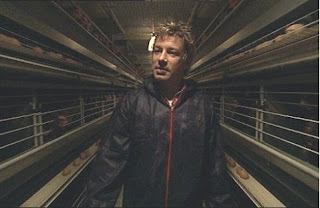

 In the process, some hens are dropped or escape from their cages. Many of these end up in the manure piled up on the ground level of the sheds below the cages – the accumulated droppings of the thousands of hens over the previous year.
In the process, some hens are dropped or escape from their cages. Many of these end up in the manure piled up on the ground level of the sheds below the cages – the accumulated droppings of the thousands of hens over the previous year. 



